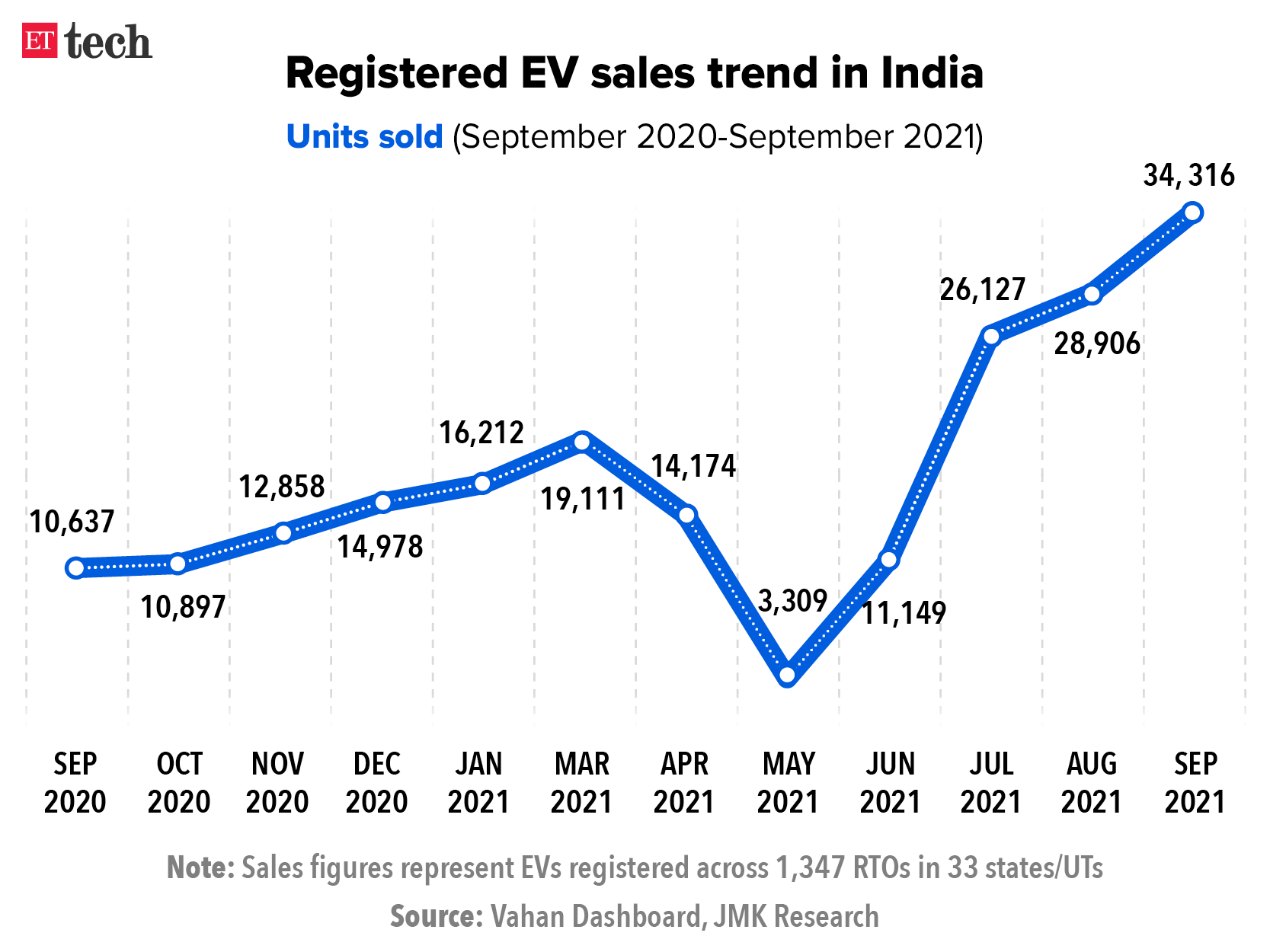Brazil's EV Market: BYD's Ascent And Ford's Decline – A Maluf Perspective

Table of Contents
BYD's Rapid Rise in the Brazilian EV Market
BYD's meteoric rise in Brazil's electric vehicle market is a compelling case study in strategic market entry and execution. Their success can be attributed to a multi-pronged approach focusing on pricing, technology, and marketing.
Competitive Pricing and Product Strategy
BYD adopted an aggressive pricing strategy, targeting the mass market with competitively priced electric SUVs and passenger cars. This was crucial in a market where price sensitivity is high.
- Aggressive pricing strategy: Undercutting competitors significantly.
- Focus on SUVs and passenger cars: Catering to popular segments in the Brazilian market.
- Localized production and supply chain: Reducing costs and import dependencies.
- Strong after-sales service: Building customer trust and loyalty.
Their success is exemplified by the popularity of models like the BYD Tang and BYD Yuan Plus, which have captured significant market share. Government incentives for electric vehicle purchases, such as tax breaks and subsidies, have also undeniably boosted their sales.
Technological Advantage and Innovation
BYD's technological prowess, particularly its Blade Battery technology, has been a key differentiator.
- Blade battery technology: Offering superior range and safety compared to traditional lithium-ion batteries.
- Advanced driver-assistance systems (ADAS): Providing features such as adaptive cruise control and lane keeping assist.
- Strong electric motor performance: Delivering impressive acceleration and efficiency.
- Innovative design features: Attracting customers with stylish and modern aesthetics.
The longer range and enhanced safety provided by the Blade Battery technology are particularly appealing to Brazilian consumers, addressing range anxiety—a major concern for potential EV buyers. The inclusion of competitive ADAS features further enhances the appeal of BYD vehicles.
Effective Marketing and Brand Building
BYD's marketing strategy has been effective in building a positive brand image and generating significant consumer interest.
- Targeted marketing campaigns: Focusing on key demographics and media channels.
- Strategic partnerships: Collaborating with local businesses and influencers.
- Positive media coverage: Securing favorable reviews and articles in major publications.
- Emphasis on sustainability and environmental benefits: Appealing to environmentally conscious consumers.
Their marketing campaigns have effectively highlighted the value proposition of BYD EVs, emphasizing both their affordability and advanced technology. Strategic partnerships have further enhanced their reach and credibility within the Brazilian market.
Ford's Challenges and Market Share Erosion
In stark contrast to BYD's success, Ford has struggled to gain traction in Brazil's EV market. Several factors have contributed to their decline.
Lack of Dedicated EV Strategy
Ford's late entry into the Brazilian EV market and limited model offerings have hampered their progress.
- Limited EV model offerings: A smaller selection compared to competitors like BYD.
- Late entry into the Brazilian EV market: Missing out on early-adopter opportunities.
- Insufficient investment in EV infrastructure: Failing to support the growth of charging stations.
The delay in launching key EV models in Brazil has allowed competitors like BYD to establish a stronger foothold, making it harder for Ford to catch up. The lack of investment in charging infrastructure further hindered the adoption of Ford EVs.
Pricing and Market Positioning Issues
Ford's pricing strategy and market positioning have also proven problematic.
- High pricing compared to competitors: Making their EVs less accessible to the mass market.
- Failure to effectively target key consumer segments: Missing opportunities to appeal to specific demographics.
- Lack of brand association with EVs: Failing to establish a strong brand identity in the EV space.
Their higher pricing, compared to BYD's competitive offerings, has significantly limited their market appeal. Their marketing efforts have not successfully communicated the value proposition of their EVs to the target audience.
Global Market Shifts and Internal Restructuring
External factors and internal restructuring have also contributed to Ford's challenges in Brazil.
- Impact of global supply chain disruptions: Facing challenges in securing components and managing production.
- Internal restructuring and reorganization within Ford: Leading to reduced investment in certain markets.
- Reduced investment in the Brazilian market: Limiting resources allocated to product development and marketing.
Global supply chain disruptions have further exacerbated Ford's challenges, impacting production and delivery timelines. Internal restructuring and reduced investment in the Brazilian market have further hampered their ability to compete effectively.
The Maluf Perspective
Ricardo Maluf, a renowned automotive industry expert, offers a nuanced perspective on the contrasting fortunes of BYD and Ford in Brazil.
Analyzing the Market Dynamics
- Government incentives and policies: Maluf emphasizes the role of government support in boosting EV adoption and how BYD leveraged these incentives more effectively.
- Consumer preferences and purchasing behavior: He highlights the importance of understanding Brazilian consumer preferences, particularly regarding pricing and features, and how BYD successfully tailored its offerings to meet these needs.
- Infrastructure development: Maluf points out the importance of charging infrastructure and the impact of its relative scarcity on market growth.
- Long-term market forecasts: He provides insights into the future outlook for the Brazilian EV market, including predictions on growth rates and market share distribution among different manufacturers.
Maluf's analysis underscores the importance of a comprehensive and adaptable strategy that considers not only technological innovation but also pricing, marketing, and government policy.
Conclusion
BYD's remarkable ascent and Ford's struggles in Brazil's burgeoning EV market highlight the complexities of navigating this rapidly evolving sector. BYD's strategic approach, encompassing competitive pricing, technological innovation, and effective marketing, has propelled its success. In contrast, Ford's challenges underscore the importance of a dedicated EV strategy, appropriate market positioning, and resilience to global market shifts. The Maluf perspective provides valuable insight into the specific factors driving this dynamic change. To stay informed on future developments in the exciting Brazilian EV market, continue to follow our analysis. Understanding the successes of companies like BYD and the challenges faced by companies like Ford is crucial for anyone invested in or interested in the future of the Brazil EV market.

Featured Posts
-
 The 2024 Protest Where Hit The Road Drax Was Sung
May 13, 2025
The 2024 Protest Where Hit The Road Drax Was Sung
May 13, 2025 -
 Heist Sequel Hits Amazon Prime Everything We Know So Far
May 13, 2025
Heist Sequel Hits Amazon Prime Everything We Know So Far
May 13, 2025 -
 Sequel To Hit Heist Film Starring Iconic Scot Now Streaming On Amazon Prime
May 13, 2025
Sequel To Hit Heist Film Starring Iconic Scot Now Streaming On Amazon Prime
May 13, 2025 -
 Elsbeth Season 2 Episode 15 A Disappointing Conclusion
May 13, 2025
Elsbeth Season 2 Episode 15 A Disappointing Conclusion
May 13, 2025 -
 Orange County Team Scores And Player Statistics Thursday February 20
May 13, 2025
Orange County Team Scores And Player Statistics Thursday February 20
May 13, 2025
